Feeling down as the year ends? Expert advice on coping with festive season blues
Why should you be forced to be joyful or accept social invitations if you're not feeling up for it?

(Photo: iStock/Mukhina1)
Another year is coming to an end and still, the same pandemic blahs seem to be on loop play. COVID-19 hasn’t exactly gone away; in fact, we now have to contend with the new XBB variant – and we aren’t even done with the Omicron one yet.
It's back to the office and back to the dreaded rush-hour commute. You’re exhausted but you haven’t been able to properly put down work. Sure, you could take a holiday now that the borders are open but there is also the risk of cases spiking – and ruining your break.
It doesn't seem like you can catch a break at all, does it?
It could be pessimism layered on top of another long year of COVID-19 fatigue, said John Shepherd Lim, the chief wellbeing officer of Singapore Counselling Centre. December is also the time when “people reflect on the past year and set new goals for the upcoming one”, he added.

“Reflection often brings about mixed feelings: The excitement and anticipation of starting a new year, and grappling with unaccomplished matters in the past year.” The latter, said Lim, is more keenly felt by “those who have had a challenging year as it can retrigger unresolved pains and memories of upsetting events”.
It might just as well be the usual blues set off by the passage of time, which can remind us of our own mortality.
“In Singapore, where there are no seasons, the end of the year can bring about a stronger awareness of the passage of time,” said Dr Lim Boon Leng, a psychiatrist from Gleneagles Hospital. “We may notice the ageing of family and friends more acutely when we meet them only annually. This also causes us to reflect on our own ageing and may result in anxiety and sadness.”
But if the season of joy isn’t inspiring any in you, there could still be ways of looking at the bright side of things.
Here’s a look at some common scenarios why you might be feeling a certain way – and what you can do to have a Christmas that, while not feeling merry, might be right for you.
SCENARIO #1: YOU CAN’T SEEM TO MUSTER JOY FOR THE FESTIVE SEASON

Ironically, the shiny festive period, which is supposed to, in Marie Kondo’s words, spark joy, can add another layer of ennui to your year-end blues. “During the festive period, there is a huge expectation to celebrate as a family. But many may not have this privilege due to the social distancing arising from COVID-19,” said Dr Lim.
As a result, it is common to feel low or lonely, especially if you are grieving over the loss of a loved one. Or the festive period may induce anniversary grief by reminding you of your loss during this time of the year, said Dr Lim.
What the experts say: It is perfectly fine and normal to feel down at the end of the year, even when everyone else seems to be displaying good cheer, said Lim. These symptoms are usually temporary and can show up in anticipation of the year-end season. Generally, they go away soon after the year ends, he said.
In the meantime, “there is no need to judge or perk yourself up”, said Dr Lim. Give yourself the go-ahead to feel down if that’s how you’re feeling. “Let yourself be in touch with your negative emotions, explore them for a while, and then gently bring your focus back to the present and the task at hand,” he advised. The last thing you want to do is to “overindulge in melancholy or throw a big tantrum”.
However, Dr Lim draws the line when you start to feel low and despair persistently. Seek a mental health professional’s help, he advised, if you also lose motivation, suffer from insomnia, become persistently lethargic, have suicidal thoughts and your work or social life is affected.
SCENARIO #2: YOU JUST DON’T FEEL LIKE SOCIALISING WITH OTHERS

Over-committing yourself to social obligations is one of the significant triggers for year-end blues, according to Lim. “Many fear being perceived as rude. Or they have a fear of missing out if they decline social gatherings. But consider this, too: You might not be your best, present self if you force yourself to show up at social events, he said.
What the expert says: If you feel that your personal limit to socialise has been stretched, turning down social invitations might be a wise thing to do, said Lim. You can always schedule a catch-up another day with specific individuals whom you want to reconnect with, he advised.
If you can’t turn down an invitation, try setting a time that you must leave by, and inform the host at the start of the event, suggested Lim. Communicate your need for space tactfully; for instance, you could let your friends or family know that you appreciate the invite, but you need to leave at a certain time, he said.
SCENARIO #3: THE COMBINATION OF WFH AND YEAR-END PROJECTS TO FINISH UP IS DRAINING
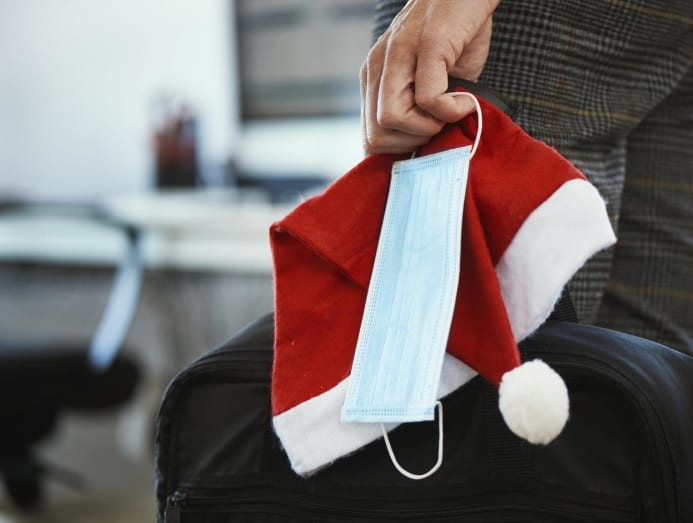
Much discussion has centred around poorer work-life balance, work-family conflicts as well as feelings of isolation, noted Lim.
“As deadlines draw near, it often results in more virtual meetings to finalise projects and reports. This could result in Zoom fatigue, the sense of strain, tiredness, or even burnout after hours of communicating with your colleagues or teammates over video conferences.”
Lim also noted that while many have slowly adjusted to this new normal, the lack of connectedness is felt increasingly strongly, especially for those who do not live with their families and who have not been able to return home for the festive season.
Those who do live with their families face other challenges. “The conflict between work and family might be all the more exacerbated during this time as children are on their holiday break, and things get busier on the family front with having to prepare for social gatherings and events,” said Lim. “This can make it all the more challenging to cope with both work and family demands.”

What the expert says: One helpful practice is to learn to prioritise and be resolute in letting go of things that do not align with your goals, advised Lim.
“This prioritisation can happen seasonally (for instance, family is a priority in December). But it should also happen weekly and daily. For example, I have urgent deadlines to meet this week, so I will focus on work and only start gift shopping over the weekend,” said Lim.
Another way to let go of stress is to learn to notice and appreciate the small things in life. “When we are feeling overwhelmed or negative, look for ways to reframe the experience by finding humour or gratitude in the moment,” suggested Lim.
“Notice the things about the situation you appreciate, and make an effort to express that appreciation. The creation of an appreciative environment facilitates contagious, positive vibes which make this season meaningful.”
And get enough sleep. “As counterintuitive as it may be, choosing to sleep substantially greatly affects our energy levels, moods, and in turn, our stress levels during the day. We are generally in a better state to manage stress and respond well when we are well rested,” said Lim.
SCENARIO #4: WITH SO MANY CHORES TO DO, YOU DON’T HAVE TIME FOR YOURSELF
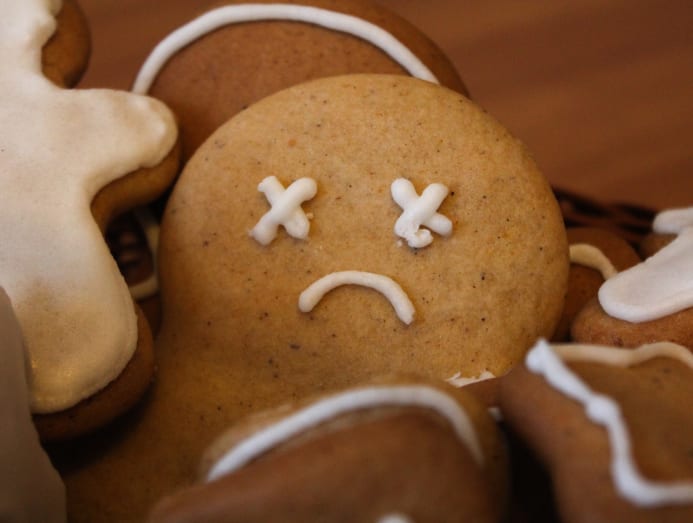
You are busy enough as it is. With Christmas and New Year around the corner, there is even more to do (cleaning, decorating, present shopping, cooking up a feast or at least ordering one). “We feel extra obliged to make things work out, despite the stress, as the festive season is often seen as special and only ‘once a year’,” said Dr Lim.
What the experts say: “Caving in to the expectations of others or having too high of an expectation of yourself and subjecting yourself to these stresses often lead to nothing but disgruntlement,” said Dr Lim.
Lim agreed. “The key lies in setting realistic expectations for yourself and knowing your limits,” he said. “Think about what matters the most to you during the holidays. Having some clarity on what you want and value can make the festive season more enjoyable for you.”
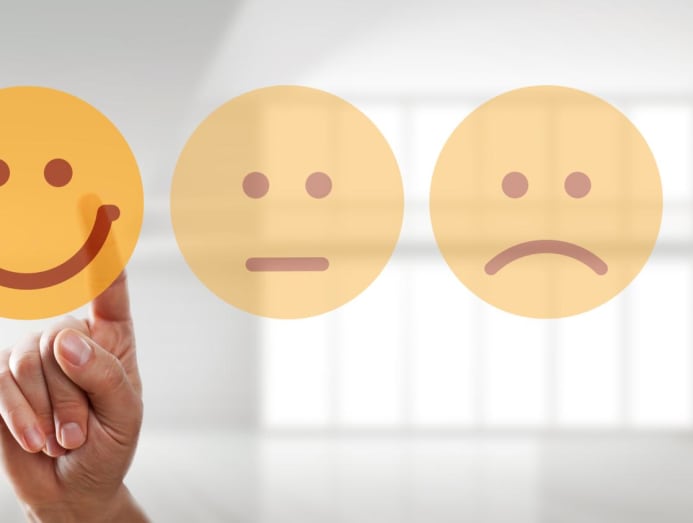
As for Dr Lim, he beats the stress of year-end festive planning by adopting a new mindset. “I tell myself that whilst the festive season is symbolic in many ways, it is simply another day of the year,” he said. That takes the pressure off the mentality that “big gatherings, meet-ups or big meals with many people” is necessary and in doing so, “decreases the stress of having to cramp them into the year end”.
If you have to gift shop and party plan, Lim suggests using the time you spend queueing at the cashier or taxi stand to good use rather than feeling stressed and trapped.
“Use the time to clear your mind of things that you cannot currently attend to, make a gratitude list, listen to your favourite audiobook or podcast, practise mindfulness, or just take the time to catch your breath,” Lim suggested.
SCENARIO #5: IT'S THE END OF THE YEAR AND YOU'RE ANXIOUS YOU HAVEN’T ACCOMPLISHED MUCH

It is report card season when work performance reviews and New Year resolution appraisals (Did you lose weight? Did you finally master Korean?) are meted out at this time of the year. And it’s not just your own performance.
“We are often bombarded by the highlights of other people’s lives or what they have set in plan for the upcoming year. This can become overwhelming as we compare ourselves with another person, whose social media presence often leaves out the uglier and more mundane elements,” said Lim.
Furthermore, the pressure to have “Instagram-worthy” celebrations is heightened when we’re exposed to the commercialisation of the holidays as well as the depictions of “perfect” moments on social media, added Lim.
What the experts say: “We tend to base our self-worth only on our socio-economic status and employment,” said Dr Lim, “and neglect the value of our roles as a friend, mentor, sibling or parent. We may also have talents and be good in skills beyond our jobs.”
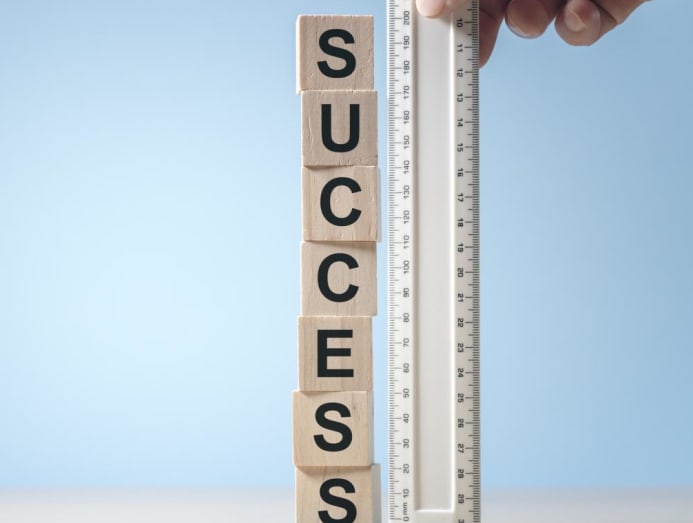
Continued Dr Lim: “If you were to put all your eggs (self-worth) into one basket (your work) and it is not going well, you may start to feel worthless. However, if you see yourself more than your job, you continue to be a good parent, child or friend, and remain talented in your area, even if work is not going well”.
It is also important to acknowledge the good that has happened in 2022 to help reduce your feelings of inadequacy and disappointment, said Lim. “Create a list of the things you have done in this past year in different aspects of your life – be it at work or home – and map out the things you have achieved and learnt. This helps to set things in perspective as you remember the good that did exist in your year as well.”

When you’re done with this “homework”, think about what you’d like to do moving forward. Things are volatile because of COVID-19, so big goals may have to wait for now. Instead, set smaller and more realistic goals, said Lim.
For instance, rather than say, I want to be a better person, make plans to volunteer once a month. “Keep your commitments realistic, and remind yourself to take things one step at a time. Setting goals that are too large or vague can set us up for disappointment when we miss the mark,” said Lim.
SCENARIO #6: 2022 WASN’T GREAT AND YOU’RE AFRAID THAT 2023 ISN’T GOING TO BE BETTER
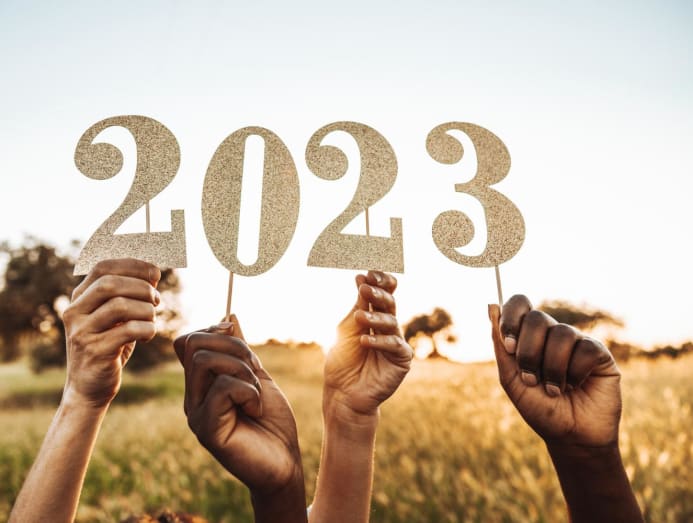
Fearing that 2023 will be worse will not make it better in any way, said Dr Lim. “Sometimes, the fear itself creates a self-fulfilling prophecy. The last thing we want is a year laced with fear, founded or not."
Lim added that it is natural to fear disappointment in 2023 since what lies ahead remains uncertain. “Disappointment sets in when reality does not meet our expectations. We experience feelings of suffering trying to control uncontrollable realities, or when we tie our happiness to situations that are not within our control to make happen.”
What the experts say: “Focus on things that are within your control, rather than things that are not, for example, the COVID-19 situation,” said Lim.
To start, change how you evaluate a situation by learning to balance realism and optimism. “Being able to evaluate our challenges and losses with clear eyes – while holding on to the belief that we will get through – helps us make better decisions without getting caught up in our current difficulties or future plans,” said Lim.
It also helps to keep your expectations for the COVID-19 situation in check, reminded Dr Lim, as things are so fluid now. “Then, think about strategies and useful ways to improve your quality of life going forward. It could be learning to cook your favourite dish or picking up a new hobby.”
Getting support from loved ones go a long way in minimising feelings of loneliness, too, said Dr Lim, be it through face-to-face family dinner or social media comments. “Helping and supporting others will also help us feel better about ourselves,” he added.






